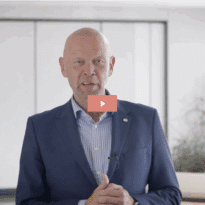Para-Sols’ first graduate recruit, Grant Callaghan is now the firm’s head of paraplanning. Rob Kingsbury spoke to him about his views on paraplanning and his journey so far
To be a paraplanner, says Grant Callaghan, head of paraplanning at outsourced paraplanning firm Para-Sols, you need to be the kind of person who likes writing and the analytical, and that doesn’t just mean delving into numbers but someone who can spot the detail that makes a difference. “I sometimes describe being a paraplanner as being like a detective. It’s taking on cases and finding solutions. In particular, where cases are complex, it’s looking at where there might be problems and spotting when a detail doesn’t quite seem right and digging down into it to find out why.
“As a paraplanner, you’re dealing with people’s finances and what you do has an impact that you can see. Spotting where you can help someone can be the difference, for example, between them paying more tax than they should, or having enough money to retire years earlier than they thought.”
What makes paraplanning a great job for any graduate or college leaver, Grant says, is that “you don’t need a financial services degree. My degree is in Business Management but at Para-Sols we have people who have studied a wide range of subjects, arts and sciences. What’s important is that you’re prepared to work hard and are willing to be open to learning and dealing with different concepts and approaches.”
Financial services is a constantly changing industry and paraplanning is a constantly evolving profession, he says. “Demand for paraplanning is growing and it is becoming a standalone profession, which is growing in status and profile. Paraplanning is seen now as a long-term career in its own right, rather than, as in the past, a stepping-stone to becoming a financial adviser.”
Joining as a graduate
Grant joined Para-Sols straight from Worcester University where he studied Business Management. He’d been searching for a role in financial services which didn’t require a financial services degree. “I’d stumbled across paraplanning through a recruitment agency job page and it looked right for me as it played to my strengths of writing and problem solving. But every paraplanning job seemed to want a certain level of exams or experience, neither of which I had straight out of Uni. Then I saw the advert for Para-Sols, which wanted a graduate but would train me up from scratch.”
Grant joined the firm in 2014 and began by shadowing a paraplanner to see how they worked, while also undertaking basic administration and data gathering. He was gradually given a greater level of responsibility, taking on simpler cases, building his technical knowledge, skills and experience, and working his way up over time to full-on paraplanning.
He followed a set career pathway, starting at the firm as a trainee administrator, then progressed to become an administrator, trainee paraplanner and paraplanner. At the same time he started studying, achieving his Level 4 within 18 months.
“I was the firm’s first graduate trainee and although I didn’t go through the formal grad scheme (which we know of today), I’m told by Cathi that it was the success she had in hiring me that further encouraged our ‘grow your own model’ and influenced the training programme as it is now.”
After two years Grant had experienced most case types and was working as a full-on paraplanner, as well as helping the next intake of graduates learn the ropes.
“I think the best way to learn paraplanning is on the job,” Grant says. “There is a lot of technical knowledge but it’s applying it that counts. Doing the job is immediate and you have responsibilities, which helps you progress and challenge yourself.
“What I’ve particularly liked about Para-Sols is that I’ve been encouraged to do more, to become better. From what I’ve heard I think some adviser firms get their paraplanners to a certain point, where they can do what the firm wants them to do and they don’t progress any further. But I think as paraplanners we should be constantly progressing. It’s about stepping outside the comfort zone, whether our own or a firm’s.
Taking a structured route into paraplanning has stood him in good stead, both in respect of his current and future roles, he believes. “Coming in with no experience and being able to shadow and support a paraplanner, then being given the support to study for exams and the freedom with no restriction on how I progress and where I want to go with my career, has been the best route and preparation for where I am now.”
“Also, being part of an outsourced firm means you are constantly expanding your technical knowledge and case experience because you pretty much deal with all areas of advice from firms across the country.”
Head of paraplanning
Par-Sols serves 100 + advisory firms and has separated the paraplanning team into four hubs, each with responsibility for a certain group of advisers. Being served by a dedicated hub, the adviser firms have consistency and a clear point of contact, and the paraplanners can get to really know the advisers and mould themselves to the way they work.
Responsibility for the overall operation and training is with Jo Campbell, Director of Operations and Quality. Grant was promoted to Head of Paraplanning in January 2018 and oversees the firm’s paraplanners in respect of whatever help they need including answering queries, running Breakfast Study Clubs with graduate and junior paraplanners and delivering any informal training they need on a day-to-day basis. He also has his own paraplanning cases. “These can be more technical or complex but I’ll also deal with simpler cases, especially when we are under pressure,” he says.
A large part of his role is with external contacts, primarily with advisers. “Typically, I’ll be talking with them about technical or tricky cases – especially if they pick up clients requiring an area of advice they are not used to – as well as acting as a sounding board around advice.
Being outsourced, we tackle a wide range of cases and so we’ll often have come across areas that an adviser may not have or not in any great volume and we can provide knowledge and support in that way.
It’s mainly about concepts and approaches as opposed to products. We’ll also deal with firms’ platform due diligence and central investment proposition requirements.”
In terms of the support Grant provides to paraplanners, he says, for graduates and junior paraplanners “I’ll most often talk through the approaches we have developed and the way we work with certain types of cases; at senior paraplanner level I’ll be talking through the approach with more complex and riskier cases. Often it will be help with the questions to ask advisers or providers to get the right information we need. And then it will be technical support where needed. As outsourced paraplanners we can get some random questions at times.”
“I also write for a great deal of our technical content for our website, providing blogs and case studies which we think will benefit our adviser clients and the profession on the whole.”
The most challenging aspect of being head of paraplanning, Grant says, is effective time management. “As a paraplanner you quickly learn to manage your time because of the deadlines you have but in this job it’s also about dividing my time effectively between external demands and internal needs.”
Paraplanning as a career
Grant believes that with the profile of paraplanning growing in the industry, it is becoming a more attractive career destination for graduates and college leavers.
“Paraplanners are becoming more influential in the industry. In part this is because as a group of people we are becoming ever more technical and qualified. And because there are a lot more career paraplanners now, with the higher qualifications and experience, advisers are not just using paraplanners to save time and write reports, they are using them for their technical knowledge and support. These days there are a lot more opportunities opening up for paraplanners.”
It’s also about choosing the right firm to work for, he adds. “When I first joined Para-Sols I hadn’t envisioned that in five years I’d be head of paraplanning. It’s being given the flexibility, responsibility and the support that I think has allowed me to get to where I am. Para-Sols is an ambitious and dynamic firm and it may seem like a cliché but there is great team ethic, we all support each other. If I had to use one word to describe Para-Sols it would be ‘open’ – from the open plan office and the open and supportive culture through to their open-mindedness of where my career can progress too.”
“There’s been some very exciting developments here in the last couple of years – from the introduction of our sister company Apricity (outsourced compliance support), through to the more recent launch of The Art of Finance (training academy) and the formalisation of The Verve Group. Of course, my day-to-day priority is Para-Sols but ultimately all the growth within the company, and across the whole group, gives me a load of opportunity in terms of how, when and where I can develop further. If it wasn’t for the growth of Para-Sols to date, the role I have now as head of paraplanning wouldn’t have existed and I certainly wouldn’t have been in the position which won me Professional Adviser’s‘Paraplanner of the Year’ Award earlier this month. The excitement is infectious too!”






























